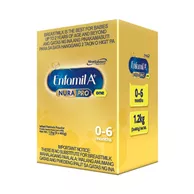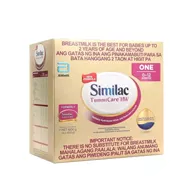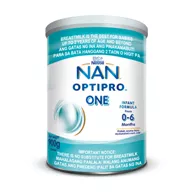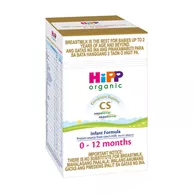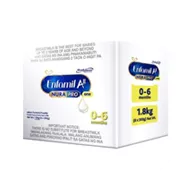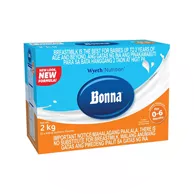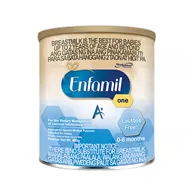Choosing the best formula milk for your newborn in the Philippines is a crucial decision for any parent. With numerous options available, finding the best one can be overwhelming. In this article, we have created a carefully chosen list of the top formula milk products that fulfill your newborn’s nutritional requirements. Our selection considers factors like quality, safety, and adherence to Philippine regulations. Whether you’re a first-time parent or experienced, our guide aims to offer valuable insights to help you make an informed decision. Let’s explore the best formula milk options for newborns in the Philippines, ensuring your baby gets the best start in life.
Welcome to our helpful guide on choosing the best formula milk for newborns (0-6 months) in the Philippines. As a parent, picking the right formula milk for your precious little one is crucial for their healthy growth. In this guide, we will explore the top formula milk options available in the Philippines, specially designed to meet the needs of newborns.
Throughout this guide, we’ll provide valuable insights into the factors to consider when selecting the best formula milk for your baby. We’ll also share safety guidelines and storage tips to ensure your baby gets the best nutrition and stays healthy. Additionally, we’ll address the important topic of introducing solid foods alongside formula feeding at the right age and in a safe way.
Choosing the right formula milk for your newborn can bring up many questions. That’s why we’ve also compiled the most common FAQs about formula milk for newborns in the Philippines, addressing concerns that parents often have while caring for their little ones.
By the end of this guide, we hope you’ll feel well-informed and confident in making the best decisions for your baby’s nutrition and well-being. Keep in mind that each child is unique, and what works for one might not work for another. So, it’s essential to consider your baby’s individual needs and consult with a healthcare professional for personalized advice.
Let’s embark on this exciting journey together, ensuring that your newborn receives the best care and nourishment possible!
Table of Contents
ToggleWhat Are The Best Formula Milk for Newborns in the Philippines
1. Enfamil A+ One Lactose Free Milk Powder For 0-6 Months
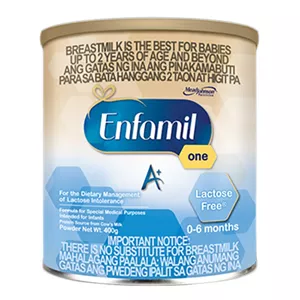
Best for lactose intolerance
Enfamil A+ One Lactose-Free Milk Powder is a baby formula made for infants who have trouble with lactose. This formula can be beneficial for babies with lactose sensitivity because it has essential nutrients for brain development. However, it’s essential to be aware of the potential constipation issue and the presence of corn syrup and sugar in the formula.
Pros:
- It has DHA, an Omega-3 fat that helps the baby’s brain grow.
- It’s easy for babies to digest and doesn’t upset their tummy.
- Studies show that it can help with brain development up to age 5.
Cons:
- Some babies might get constipated when using this formula.
- It contains corn syrup and sugar, which might not be ideal.
2. Enfamil A+ One Nurapro Infant Formula For 0-6 Months
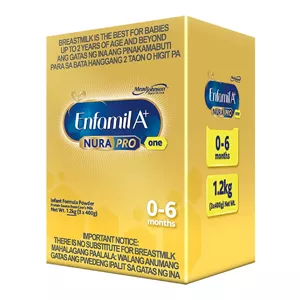
Best for overall nutrition
Enfamil A+ One Nurapro Infant Formula is a special milk-based formula made for babies aged 0-6 months. It has important nutrients and a unique HuMO6 immune blend that helps with brain development.
Pros:
- It has all the important nutrients that babies need to grow and develop.
- Studies show that it can help with brain development up to age 5.
- It contains DHA, which is recommended by experts worldwide for brain growth.
- It includes an exclusive HuMO6 immune blend that supports the baby’s immune system.
Cons:
- Some people might find it expensive when compared to other formula options available.
3. Enfamil AII Nurapro One Infant Formula Powder For 0-6 Months
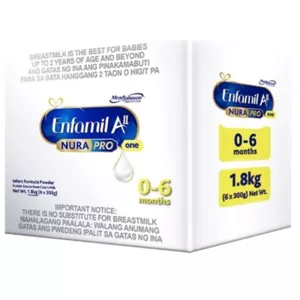
Best for colic
Enfamil AII Nurapro One Infant Formula Powder is a special milk-based formula created for babies aged 0-6 months, and its protein comes from cow’s milk. This formula provides essential nutrients, supports the immune system, and aids in brain development.
Key Benefits:
- It has all the necessary nutrients for the growth and development of infants.
- It contains an exclusive HuMO6 immune blend, which helps support the baby’s immune system.
- The formula includes DHA, a nutrient recommended by experts worldwide for brain development.
4. HiPP Organic CS Infant Formula For 0-12 Months
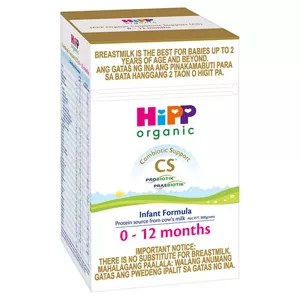
Best organic formula
HiPP Organic CS Infant Formula is a milk-based formula made for babies aged 0-12 months. It’s designed with lactose, which is the main carbohydrate source, similar to natural breast milk.
Key Benefits:
- It has all the important nutrients that babies need to grow and develop.
- The formula uses lactose, which is the closest carbohydrate to what’s found in natural breast milk.
- It’s gentle on a baby’s tummy, making it easier to digest.
- The formula is organic and free from genetically modified organisms (GMOs).
5. Lactum Infant Formula Powder for 0-6 Months
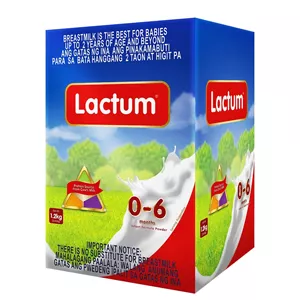
Lactum Infant Formula Powder is a milk-based formula specially made for babies aged 0-6 months, and its protein comes from cow’s milk. It’s packed with all the important nutrients needed for babies to grow and develop.
Key Benefits:
- It has all the essential nutrients necessary for a baby’s growth and development.
- It’s easy to prepare, making feeding time more convenient.
6. Nestlé NAN INFINIPRO HA One
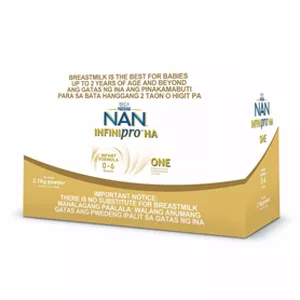
Nestlé NAN INFINIPRO HA One Infant Formula is a milk-based formula made from cow’s milk protein, designed for babies aged 0-6 months. It’s a good choice for babies in their early months, especially for those with potential allergies.
Key Benefits:
- It’s a hypoallergenic formula, suitable for babies who might be prone to allergies.
- It has all the essential nutrients needed for a baby’s growth and development.
- The formula contains partially broken down cow’s milk protein, which can be easier for babies to digest.
7. Nestlé NAN OPTIPRO One Infant Formula For 0-6 Months
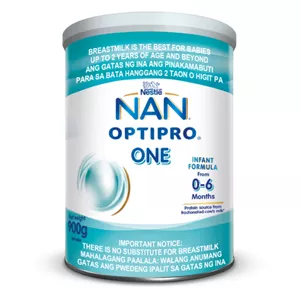
Best for brain development
Nestlé NAN OPTIPRO One Infant Formula is a milk-based formula specially made for babies aged 0-6 months. It’s a high-quality starter formula that provides all the necessary nutrients for a healthy baby from birth. The formula’s protein comes from cow’s milk, with a focus on whey.
Key Benefits:
- It contains all the essential nutrients needed for a baby’s growth and development.
- The formula is carefully designed to give your formula-fed baby balanced and top-notch nutrition.
- It’s easy to prepare, making feeding time a breeze.
8. Nestogen 1 Infant Formula Milk For 0-6 Months
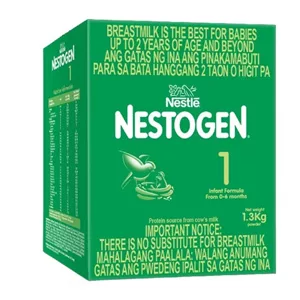
Nestogen 1 Infant Formula Milk is a special milk-based formula made for babies aged 0-6 months. It is considered to be a good choice for babies in their early months as it provides essential nutrients, supports growth, and includes a probiotic for digestion.
Key Features:
- It has all the important nutrients needed for a baby’s growth and development.
- The formula is enriched with calcium, Omega 3, and Omega 6, which are essential for the baby’s growing body.
- It contains L Comfortis, a special probiotic that helps with digestion.
9. Nutramigen LGG Infant Formula Powder for 0-12 Months

Nutramigen LGG Infant Formula Powder is a good choice for babies with cow’s milk protein allergy. It provides essential nutrients, supports digestion with the probiotic, and can help manage colic efficiently.
Key Features:
- It’s a hypoallergenic formula, ideal for infants with cow’s milk protein allergy.
- The formula contains all the vital nutrients necessary for a baby’s growth and development.
- It includes L Comfortis, a special probiotic that aids in digestion.
- Clinically proven to manage colic quickly, often within 48 hours.
10. S-26 Gold One Infant Formula For 0-6 Months

Editor's Choice
S-26 Gold One Infant Formula is an advanced premium infant formula specially created for babies aged 0-6 months. Being scientifically advanced and because of its essential nutrients provided. It is considered to be a good choice for babies in their early months.
Key Benefits:
- It has all the vital nutrients needed for a baby’s growth and development.
- The formula is scientifically advanced, and designed to provide the best for babies.
11. Similac Infant Formula For 0-6 Months
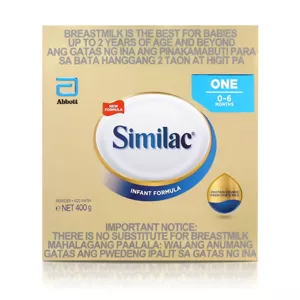
Similac Infant Formula is created to give your baby all the nutrients they need to grow and develop. It contains a prebiotic blend that is very similar to the one found in breast milk. This helps support your baby’s healthy growth.
Pros:
- The formula contains milk-based protein, essential vitamins, and minerals, which are important for your baby’s growth and health.
Cons:
- Some babies may have sensitivity to lactose, which can lead to fussiness and gas. In such cases, Similac Sensitive and Pro-Sensitive, which are milk-based formulas with reduced lactose, can be a suitable alternative.
12. Similac TummiCare Hw One
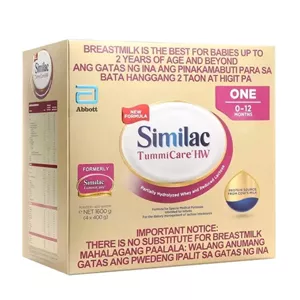
Best for digestion
Similac TummiCare HW One is a special medical formula designed for infants. It provides essential nutrients and is formulated to be gentle on the tummy.
Key Benefits:
- It contains all the important nutrients needed for a baby’s growth and development, including vitamins A, B12, C, and D, iron, selenium, and zinc.
- The formula has partially hydrolyzed whey and reduced lactose, making it easier to digest.
13. Wyeth Bonna Stage 1 Infant Formula For 0-6 Months
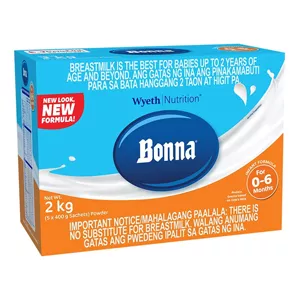
Best for constipation
Wyeth Bonna Stage 1 Infant Formula is a milk-based formula created for babies aged 0-6 months. The formula contains 0.055g of carbohydrates, 11g of protein, and 516 kcal of energy.
Key Benefits:
- It has all the important nutrients needed for a baby’s growth and development.
- The formula is easy to prepare, making feeding time more convenient.
Buying Guide: Factors to Consider When Choosing The Best Formula Milk for Newborns (0-6 Months)
1. Age-Appropriateness and Stage-Based Formula
Selecting the best formula milk begins by thinking about your baby’s age. Babies have different nutritional needs as they grow up. Formula milk is made to meet these changing needs. So, make sure you pick the right formula that matches your baby’s age, like newborn formula for 0-6 months. As they get older, you can switch to follow-on formula for older babies.
2. Nutritional Content and Composition
The nutrients in formula milk are essential for your baby’s health and growth. Make sure the formula contains important things like proteins, fats, carbohydrates, vitamins, and minerals. Also, look for docosahexaenoic acid (DHA) and arachidonic acid (ARA) as they are crucial for brain and eye development. And just like in breast milk, lactose is the main carbohydrate in formula, which is a good choice for your baby.
3. Special Dietary Needs
Some babies may have specific dietary needs or sensitivities. If your baby has lactose intolerance or allergies to cow’s milk protein, you can explore lactose-free or hypoallergenic formulas. Always consult your pediatrician before making any dietary changes for your baby.
4. Source of Proteins
Certain babies may have special dietary requirements or sensitivities. If your baby is lactose intolerant or allergic to cow’s milk protein, you can consider lactose-free or hypoallergenic formulas. But before making any changes to your baby’s diet, always talk to your pediatrician for advice.
5. Convenience and Preparation
Think about how easy it is to prepare the formula milk. Powdered formula is the most common and affordable choice, but you need to mix it carefully. On the other hand, ready-to-feed formulas come pre-mixed and need no preparation, which is great for traveling or feeding on-the-go.
6. Packaging and Storage
Check the packaging and storage instructions of the formula milk. Make sure it’s tightly sealed to keep it fresh and of good quality. Some formulas need to be refrigerated after opening, while others can be stored at room temperature.
7. Brand Reputation and Safety Standards
When it comes to your baby’s health, it’s crucial to pick formula milk from trusted brands that follow strict safety standards. Look for certifications from regulatory authorities like the Food and Drug Administration (FDA) to ensure its quality and safety.
8. Price and Affordability
Formula milk can be a big part of your monthly expenses. Although your baby’s nutrition is essential, also think about how much the formula costs. Compare prices of reliable brands and pick one that fits your budget without sacrificing quality.
9. Availability and Accessibility
Choose formula milk that you can easily find in stores nearby or order online without hassle. Running out of formula can be stressful, so having easy access to your preferred brand is very important.
10. Recommendations and Reviews
Ask other parents, friends, or family members for their recommendations on formula milk based on their experiences. Online reviews and forums can also give you valuable insights into how well different formulas work for newborns and if they are suitable for your baby.
11, Ingredient Sourcing and Traceability
Make sure to check if the formula manufacturer provides details about where the ingredients come from and how they are sourced. Knowing this information can give you confidence in the quality of the product.
12. Fortification and Enrichment
Certain formula milk brands may have fortified or enriched options that offer extra benefits for your baby’s health. These additions could include probiotics, prebiotics, or nucleotides, which help support the development of their immune system.
13. Product Recalls and Safety History
Before choosing a formula milk brand, research its safety history. Look for any past product recalls or safety issues. Give priority to brands with a good track record of safety.
14. Transparency in Labeling
Select formula milk brands with clear and transparent labeling. Make sure they provide accurate ingredient lists and nutritional information. Avoid products with unclear or misleading labels.
15. Compliance with National Regulations
Make sure the formula milk you choose follows the regulations and guidelines set by the Philippine government for infant nutrition. This ensures that the product meets the required standards for your baby’s health and safety.
16. Return Policy
Having a backup plan is important in case your baby doesn’t tolerate a specific formula. Check if the store or online retailer has a return policy for formula milk, so you can make changes if needed. This way, you can ensure your baby gets the right formula that suits them best.
17. Customer Support
Choose a brand that offers dependable customer support. This way, if you have any questions or concerns about their product, you can easily get the help you need. Good customer support ensures a smooth experience with the formula milk brand.
18. Pediatrician’s Recommendation
Before making any important changes to your baby’s diet, always talk to your pediatrician. They can give you personalized advice based on your baby’s unique needs and health conditions. Consulting with them ensures the best decisions for your baby’s well-being.
19. Environmental Impact
Think about the environmental impact of the formula milk packaging and how it’s made. Choose brands that focus on sustainability and eco-friendly practices. This way, you can contribute to a healthier planet while taking care of your baby’s needs.
20. Avoiding Counterfeit Products
Be careful of counterfeit formula milk products that might not meet safety standards. Buy from authorized retailers or the brand’s official website to ensure you get genuine and safe formula milk for your baby.
21. All-in-One Formulas vs. Specialty Formulas
Some formulas are made to meet multiple needs, while others target specific conditions. Pick the one that suits your baby’s requirements the most. Considering your baby’s unique needs will help you make the right choice for their well-being.
22. Transitioning to Solid Foods
As your baby grows, they will eventually start eating solid foods. Think about how the formula milk complements this transition and supports their nutritional needs during this important stage. Ensuring that the formula meets their changing requirements will aid in their healthy development.
23. Checking Expiry Dates
Don’t forget to check the expiry date on the formula milk packaging. This ensures that the formula is fresh and potent, providing your baby with the best nutrition.
24. Consulting Local Support Groups
Getting involved in local parenting support groups can be helpful. Experienced parents can offer valuable advice on choosing the right formula and taking care of your baby. Being part of such groups can provide you with valuable insights and support on your parenting journey.
Hot Tip: Join our Joyful Parenting Group
25. Trusting Your Parental Instincts
Lastly, trust your parental instincts. You know your baby better than anyone else. Watch how they respond to the formula milk and make changes if needed. Your intuition as a parent is valuable, and it will guide you in making the best decisions for your baby’s well-being.
Safety Guidelines for Newborns Formula Milk
Proper Sterilization of Feeding Equipment
To keep your baby safe and prevent infections, it’s important to always sterilize the feeding equipment before using it. You can do this by boiling the baby bottles, nipples, and other accessories in water for at least five minutes or using a steam sterilizer. This process gets rid of harmful bacteria and ensures that the feeding equipment stays clean and hygienic for your little one.
Safe Water Source
When making formula milk for your baby, make sure to use safe, clean, and drinkable water. If you’re using tap water, it’s a good idea to boil it first and let it cool down before mixing it with the formula powder. Alternatively, you can use filtered or bottled water that is specifically labeled as safe for infants. This way, you can ensure that your baby’s formula is prepared with the best and safest water possible.
Hygienic Handling
Before you start preparing formula milk or handling the feeding equipment, it’s crucial to wash your hands thoroughly with soap and water. This simple step helps maintain proper hygiene and prevents contamination. Remember to avoid touching the inside of the baby bottle or the nipple while handling them to ensure everything stays clean and safe for your little one.
Mixing Formula Correctly
When you’re preparing formula milk for your little one, it’s really important to follow the instructions given by the formula manufacturer. This ensures that you mix it correctly. Using too much or too little water can be bad for your baby’s health. To get it just right, use the scoop that comes with the formula and level it off to measure accurately. This way, you can be sure that your baby will get all the right nutrients from their baby bottle.
Checking the Formula Expiration Date
Remember to check the expiration date on the formula container before using it. Using expired formula can be a problem because it might not have all the important nutrients your baby needs and could cause digestive issues. So, be sure to use formula that is not past its expiration date to keep your baby healthy and happy.
Temperature Check
To check if the formula milk is the right temperature for your baby, try dripping a few drops on your inner wrist. It should feel warm, but not hot. This way, you can make sure it’s suitable and safe for your baby’s delicate palate. Taking this simple step ensures your little one enjoys their feeding time without any discomfort from overly hot milk.
Storage Tips for Newborns Formula Milk
Refrigeration Guidelines
When you’ve prepared formula milk, and your baby hasn’t finished it, it’s crucial to store it properly. Within one hour of preparation, make sure to refrigerate any unused formula. Use the refrigerated formula within 24 hours to keep its quality intact and prevent any harmful bacterial growth. By following these storage guidelines, you can ensure that your baby always gets fresh and safe formula milk.
Safe Storage Duration
It’s essential to avoid leaving prepared formula at room temperature for too long because it can become a breeding ground for harmful bacteria. To ensure your baby’s safety, it’s best to consume the formula within two hours after preparation. This way, you can prevent any potential health risks and ensure that your little one receives fresh and safe formula milk every time.
Freezing Formula
If you find yourself needing to store formula for a longer time, you can freeze it in clean and airtight containers. Frozen formula can stay good for up to a month. However, when you want to use it, make sure to thaw it safely in the refrigerator before feeding it to your baby. This way, you can keep the formula fresh and nutritious for your little one, even when you need to store it for an extended period.
Avoiding Multiple Reheating
To keep the nutritional value of formula milk intact, it’s crucial to minimize reheating. Only warm up the amount your baby will drink and avoid reheating any leftovers. By doing so, you can ensure that your little one gets the best nutrition from their formula, and you won’t waste any of it. Remember, freshly prepared formula is always the best choice for your baby’s health and well-being.
Labeling Containers
Make it a habit to label the containers with the date and time of preparation. This way, you can ensure that you use the oldest formula first and avoid feeding your baby any expired or spoiled milk. Labeling the containers is a simple but effective practice to keep your baby’s formula fresh and safe for consumption. It helps you stay organized and ensures that your little one always gets the best and most nutritious milk.
Introducing Solid Foods to Complement Formula Feeding
Solid foods play a pivotal role in a baby’s nutrition as they grow. The key is to introduce them at the right time and in the right way. Here are the essential steps and guidelines for this crucial phase of your baby’s development:
Understanding the Signs of Readiness
Before starting your baby on solid foods, it’s essential to watch for signs that show they are ready. These signs may include:
- Head and Neck Control: Your baby should be able to hold their head up steadily without needing any help.
- Sitting with Support: When your baby sits with some assistance, they should be able to sit upright and keep their head steady.
- Interest in Food: If your baby seems curious about the food you’re eating and reaches out for it, it could mean they are ready to try solid foods.
Consulting with Your Pediatrician
Remember to talk to your baby’s doctor before introducing solid foods. They can give you special advice that fits your baby’s growth and development. Keep in mind that every baby is different, so what’s good for one may not be right for another.
Introduction of Iron-Rich Foods
When your baby is about 6 months old, you can start giving them foods that are rich in iron. These include mashed or pureed meats, fortified cereals, and beans. Iron is very important for your baby’s brain development and overall growth. To be safe, introduce one new food at a time and watch for any signs of allergies or sensitivities.
Gradual Progression
As your baby begins to eat solid foods, take it slow and steady. Start with smooth purees and then slowly introduce mashed and soft finger foods. This helps them get used to different tastes and textures and lowers the chances of choking.
Building a Balanced Diet
A balanced diet is very important for your baby’s health. Offer them a mix of foods from all food groups, such as fruits, vegetables, grains, proteins, and dairy (if your doctor suggests it). This helps them develop a diverse and healthy eating habit as they grow.
Safe Feeding Practices
Safety is the most important thing when starting solid foods for your baby. Make sure to watch over them closely while they eat, and avoid giving foods that could cause choking, like whole grapes or nuts. Cut food into small pieces, and don’t add sugars or salts to their meals. This keeps them safe and healthy during mealtime.
Watching for Allergies
Food allergies can happen to babies, and it’s quite common. When you give them a new food, wait for a few days before trying another new one. This way, you can check if they have any allergic reactions and figure out which food might be causing it. Being cautious like this keeps your baby safe and helps you understand their body’s response to different foods.
Avoiding Certain Foods
There are some foods that are not safe for babies, especially when they are very young. Don’t give honey to babies under 1 year old because it can put them at risk of botulism. Also, avoid giving cow’s milk as their main drink until they are 1 year old. Staying away from these foods keeps your baby healthy and safe.
Mealtime Fun and Exploration
Make mealtime a fun experience for your little one. Let them explore different textures and tastes at their own speed. Remember, mealtime isn’t just about giving them food to grow; it’s also a time for them to learn and connect with you. Enjoy this special time together and create happy memories with your baby.
Transitioning from Formula Feeding to Solids
It’s essential to make a gradual transition from formula feeding to solid foods. Begin by giving solid foods after a formula feed, making sure your baby isn’t too hungry or too full. As time goes on, you can offer more solid foods and reduce the amount of formula feeds. This helps your baby adjust to the new diet at their own pace and ensures a smooth and healthy transition.
Keeping Hydration in Check
Even when your baby begins eating solid foods, it’s important to make sure they stay hydrated. Keep offering them formula or breast milk along with solids to keep them well-hydrated and healthy.
When Not to Introduce Solid Foods
Knowing when to introduce solids is crucial, but it’s equally important to recognize when not to do so. Avoid introducing solid foods if:
- Your baby is younger than 4 months old.
- Your baby cannot sit up with support.
- Your baby is displaying signs of the tongue-thrust reflex (pushing food out of their mouth with their tongue).
Handling Mealtime Refusals
Babies can be picky eaters as well! If your baby initially refuses solid foods, don’t worry. Offer them different foods and textures to find what they enjoy. Remember, it’s a learning process for them too.
Celebrating Milestones
When your baby starts trying new foods and experiencing different tastes, it’s a time to celebrate their achievements. This is an exciting phase in their growth, and every little step they take is important to cherish.
Adjusting the Feeding Schedule
As your baby begins eating solid foods, you might need to make changes to their feeding schedule. Make sure they have a regular routine that includes mealtime, playtime, and naptime. This helps keep them happy and healthy as they grow.
Dealing with Digestive Issues
When you introduce new foods to your baby, they might experience some digestive issues. If they have constipation or tummy troubles, try giving them more fluids and foods with fiber to help with digestion. This can make them feel better and more comfortable.
Patience and Perseverance
Introducing solid foods to your baby takes time and patience. Be patient and keep trying, respecting their signals and preferences. It’s a gradual process, and with persistence, your baby will learn to enjoy new foods.
Seeking Support and Guidance
Parenting is a journey that comes with happy moments and difficult times. If you ever feel unsure or have questions, don’t hesitate to ask for help and advice from other parents, support groups, or professionals. Seeking support can make the journey smoother and more enjoyable for you and your child.
Staying Informed on Nutrition
Keep yourself informed about the latest research and recommendations on infant nutrition. As your baby grows, their nutritional needs will change, and staying up-to-date helps you make the best decisions for them. Being informed ensures you provide the right care and nourishment for your little one.
Keeping a Food Diary
Keeping a food diary can be beneficial in keeping track of what your baby eats and any reactions they may have. This information can be useful when talking to your baby’s doctor about their diet. It helps you understand their food habits better and ensures you provide the best care for your little one.
Celebrating Gradual Independence
As your baby becomes more independent in feeding themselves, take the time to celebrate their achievements. Encouraging self-feeding is essential for developing their motor skills, and it’s a wonderful milestone to support and celebrate as they grow.
Consulting a Feeding Specialist
If your baby has difficulties with eating or has special dietary needs, think about seeking advice from a feeding specialist or a registered dietitian. They can provide expert guidance and support to ensure your baby gets the right nutrition and care.
Providing a Loving and Supportive Environment
Keep in mind that mealtime isn’t just about food; it’s a chance to bond with your baby. Create a loving and supportive atmosphere during meals, making it a positive experience for both of you. Enjoy this time together and build a strong connection with your little one.
Personal Insights and Recommendations
Being a new parent, I’ve discovered that selecting the ideal formula milk for your newborn goes beyond popularity or price tags. It’s about comprehending your baby’s individual requirements. My personal advice is this: seek guidance from your pediatrician for customized recommendations, closely monitor your baby’s digestion and potential allergies, and don’t hesitate to make a change if necessary. Additionally, keep in mind that nurturing touch and bonding time hold equal importance to the formula you select. Trust your instincts, stay well-informed, and treasure every moment with your precious little one.
FAQs About Formula Milk for Newborns
Is it safe to give formula milk to newborns in the Philippines?
Formula milk is designed to provide essential nutrients and support the growth and development of babies. When used correctly according to the instructions, formula milk is generally safe. Just be sure to choose reputable brands and talk to a healthcare professional if you have any concerns.
Can formula milk completely replace breastfeeding?
While formula milk can be a suitable alternative when breastfeeding is not possible, breast milk is generally considered the best source of nutrition for babies. If you have concerns about breastfeeding, talk to a lactation consultant or pediatrician.
Are all formula milk brands in the Philippines the same?
No, formula milk brands are different in terms of their nutritional composition, ingredients, and additional features. It’s important to compare brands and choose the one that suits your baby’s needs.
How do I prepare formula milk for my newborn?
Carefully follow the instructions provided by the formula milk manufacturer. Usually, you’ll need to mix the right amount of water with the formula powder or concentrate.
Can I mix different formula milk brands?
It’s generally not recommended to mix different formula milk brands because they may have different nutrient compositions and could upset your baby’s stomach. Stick to one brand and ask your pediatrician before making any changes.
How can I prepare formula milk safely?
Follow the manufacturer’s instructions carefully when preparing formula milk. Always use the recommended water-to-powder ratio and make sure the water is boiled and cooled before mixing. Preparing it incorrectly can be risky for your baby’s health.
What if my baby is lactose intolerant?
If your baby is lactose intolerant, consider switching to a soy-based or lactose-free formula. But always talk to your pediatrician first before making the switch.
When should I transition to follow-on formula?
The transition to follow-on formula usually happens when your baby is around six months old. However, check with your pediatrician to determine the right time based on your baby’s needs.
Can I switch formula milk brands for my baby?
If you want to switch formula milk brands, do it gradually and with the guidance of your pediatrician if necessary. Abrupt changes might cause digestive discomfort for your baby.
Are there any benefits to organic formula milk?
Organic formula milk is made from natural ingredients without synthetic additives, which some parents prefer. However, there’s no scientific proof that it’s superior to conventional formula milk.
Conclusion
Selecting the right formula milk for your newborns is an important choice that can affect your baby’s health and growth. To make a good decision, consider factors like the age-appropriateness, nutritional content, allergens, and formula type. Keep in mind that each baby is different, so what suits one might not be suitable for another. Always talk to your pediatrician to ensure you choose the best option for your precious little one.
As a new parent, choosing the right infant formula might feel overwhelming. However, with the help of this guide, you can confidently pick the best formula milk for your precious little one. Providing the right nutrition will lay the groundwork for a healthy and joyful journey as your baby grows and explores the world around them.
Written By
With a solid foundation in family dynamics, child development, and a knack for assessing products, our content is built on a strong grasp of our topics. We use trustworthy sources, seek advice from experts, and stay current with the latest happenings in our fields. We always give credit to our sources, reveal any possible conflicts of interest, and deliver info in a truthful and unbiased way. Follow us on Facebook or join our Facebook Group.
Start your journey to confident parenting
Join over 2,000+ parents who receive free practical advice and tips from Joyful PH. Unsubscribe anytime.
You may also like
11 Best Baby High Chairs in the Philippines
In the Philippines, where family meals are a cherished tradition, finding the…
11 Best Nursing Pillows in the Philippines
When it comes to nursing pillows, finding the perfect one can make a world of…
13 Best Baby Bouncers in the Philippines
The journey of baby bouncers in the Philippines is a fascinating evolution that…
13 Best Baby Toothbrushes in the Philippines
Getting the right toothbrush for your baby is essential for their oral health.…
11 Best Baby Monitors in the Philippines
Baby monitors have become a crucial tool for parents in the Philippines,…
13 Best Baby Carriers in the Philippines
Choosing the best baby carrier is essential for new parents who want to keep…


